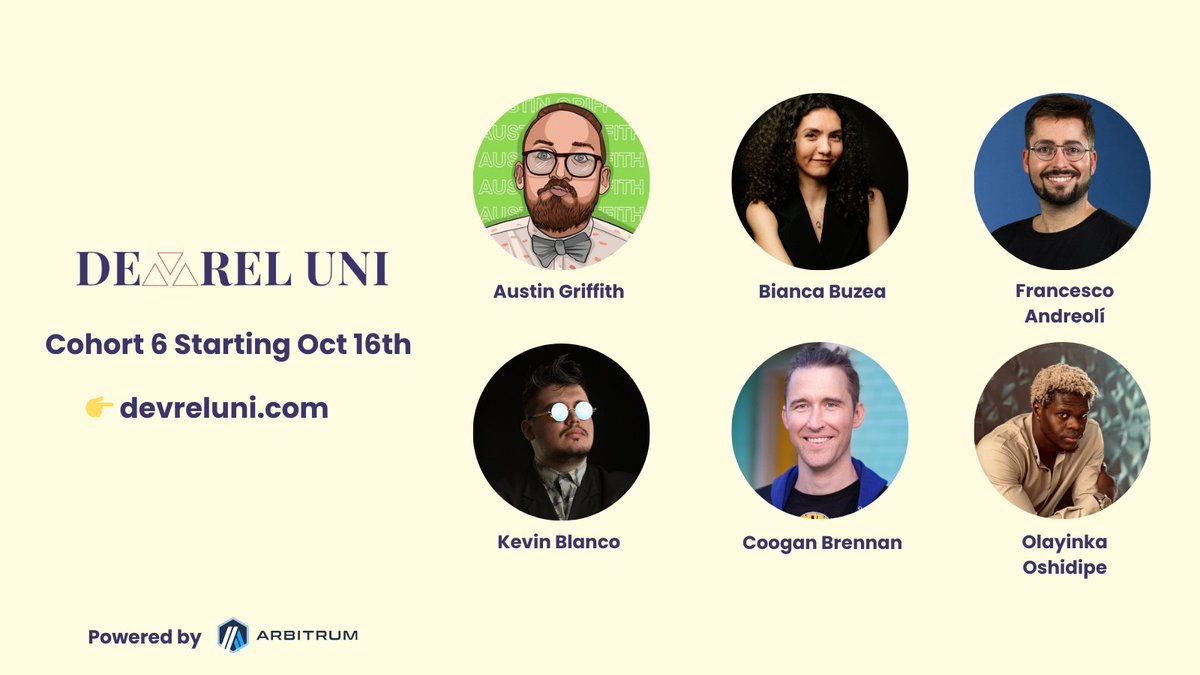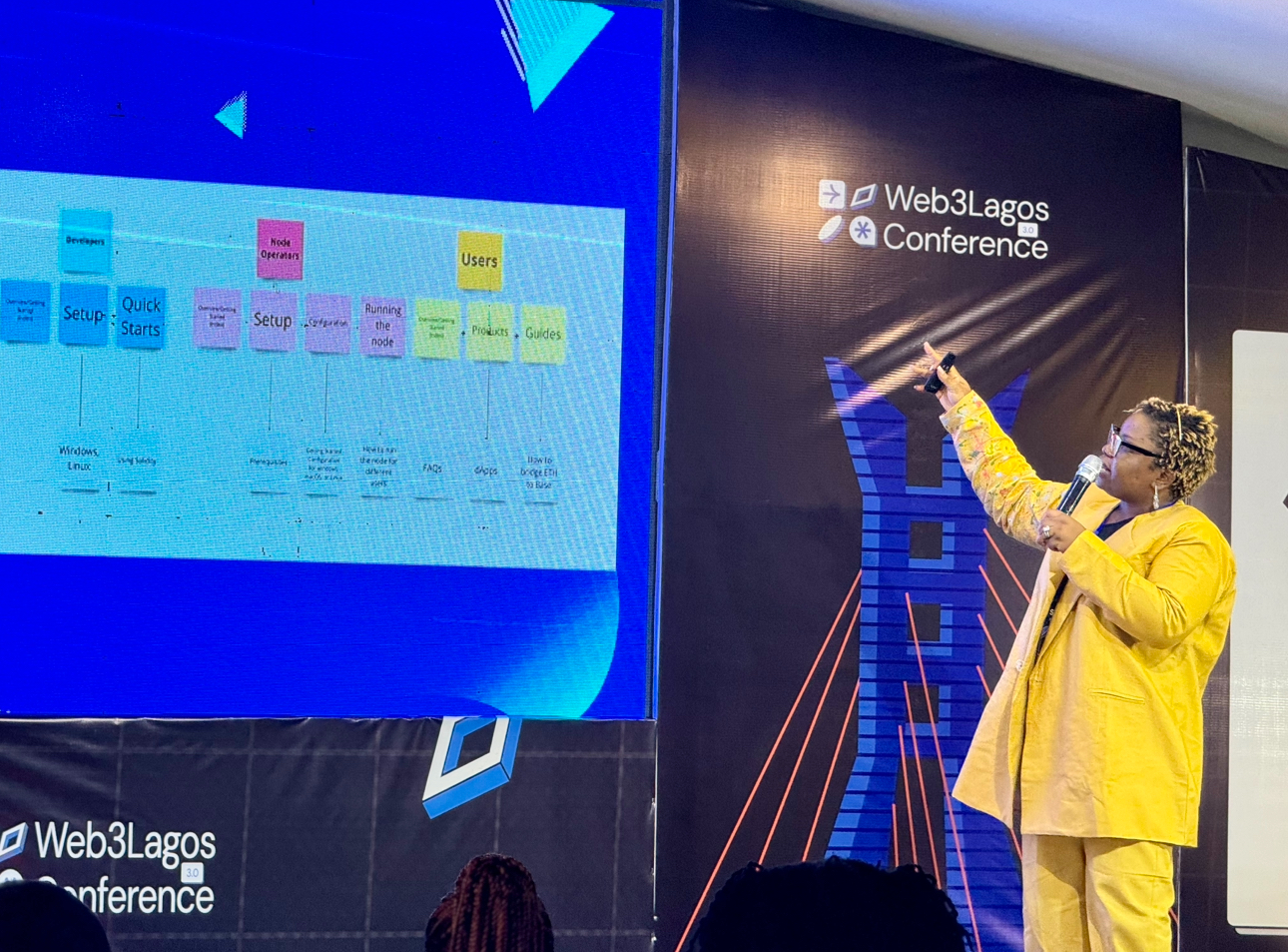How Technical Writers Can Shift to a Career in Developer Relations
 Owanate Amachree
Owanate Amachree
Are you looking to elevate your career beyond technical writing? Shifting into Developer Relations (DevRel) can be a natural next step for many technical communication professionals. With your existing foundation in technical communication, you possess a valuable skill set that is highly relevant to the dynamic world of DevRel. This guide will empower you to leverage your strengths to transition smoothly into a fulfilling DevRel career using insights from DevRel Uni.
Background
Ever since the start of my tech comm career, I have been privileged to work within developer experience teams; this has been very beneficial for my career because I believe every technical writer should have the opportunity to work within developer experience teams. This firsthand experience is crucial for professional growth, giving more opportunities for technical communicators to directly advocate for their users and contribute meaningfully to initiatives that enhance their onboarding experience. These among many other reasons are why I chose to enrol for DevRel Uni (Developer Relations University), Cohort 6 to access and build my network of devrels and also learn about the devrel profession from their varied experiences.
DevRel Uni is a six-week immersive program that welcomes a new cohort of students annually. As a member of Cohort 6 (2024), I had the privilege of learning from experienced DevRel professionals and mentors. This included Bianca Buzea (Chronicle Labs, DevRel Uni Founder), Matt Hamilton (Arbitrum Foundation), Austin Griffith (Buil Guidl), Kevin Blanco (Appsmith), Coogan Brennan (Polygon), Olayinka Shidipe (Fleek), and Francesco Andreoli (Consensys).
Key Takeaways and Insights from the Speakers

Bianca Buzea's "Developer Relations: A Comprehensive Primer" at DevRel Uni provided a foundational understanding of the multifaceted role of a DevRel professional.
Key takeaways emphasized the importance of advocacy for developers, impactful education, and building strong, inclusive communities. Buzea highlighted storytelling, empathy, and adaptability as crucial for success in this dynamic field.
As part of Week 1's assignment, we were tasked with creating a 30-60-90 day plan as a newly hired DevRel within an organization. This exercise proved invaluable, prompting me to reflect on key tasks and identify actionable ideas for my initial 90 days. Check out my X Post.
Matt Hamilton's session at DevRel Uni delved into Arbitrum, a leading Layer 2 scaling solution for Ethereum, and its innovative new tool, Stylus.
Stylus empowers developers to write smart contracts in familiar languages like Rust, C, and C++, expanding the developer pool and fostering collaboration between blockchain and traditional software engineering. Key benefits include enhanced performance, reduced gas costs, and increased accessibility for developers across different programming backgrounds.
Hamilton's presentation highlighted the transformative potential of Arbitrum and Stylus in driving innovation and expanding the boundaries of Ethereum development. Check out my team’s submission on A Comprehensive Guide to Arbitrum Stylus and Ecosystem by Owanate Amachree, Alberto Chaves, and Mirna Ampuero.
Austin Griffith's session at DevRel Uni introduced "Speedrunning Ethereum," an approach that emphasizes accessible tools, a core concept focus, and iterative learning to simplify dApp development. Key takeaways included rapid prototyping, leveraging reusable components, and collaborative learning through communities like Buidl Guidl. This allows developers to build and learn efficiently, accelerating their growth in Web3. Griffith also highlighted valuable resources like Scaffold-ETH, Speedrun Ethereum, and Buidl Guidl for participants to explore.
Kevin Blanco's session at DevRel Uni emphasized the power of storytelling in creating impactful DevRel video content. He highlighted the importance of connecting with the audience emotionally, using narrative arcs, and maintaining authenticity to deliver engaging and memorable experiences. Practical tips included identifying the target audience, keeping the message concise, and leveraging visuals for a more substantial impact. This session provided valuable insights on crafting video content that educates, inspires action, and fosters a deeper connection with the developer community.
Coogan Brennan's session at DevRel Uni emphasized the crucial role of documentation and developer bootcamps in empowering developer communities. Key takeaways highlighted the importance of creating clear, concise, and accessible documentation that caters to different skill levels. Brennan also emphasized the value of developer bootcamps in providing immersive learning experiences, fostering collaboration, and lowering the barrier to entry for complex technologies. This session underscored the importance of creating high-quality resources that empower developers, build trust, and foster a thriving developer ecosystem. Check out my series on #BuildWorldClassWeb3Docs, which shows how I implemented storytelling to document my experiences on a recent project I led.
Olayinka Oshidipe's session at DevRel Uni emphasized the importance of crafting high-quality, audience-centric content, including blogs, threads, and videos. Key takeaways included understanding the target audience, maintaining consistency, and focusing on quality over quantity. Oshidipe highlighted the importance of storytelling, concise messaging, and strong visuals in creating engaging and impactful content across different formats. This session provided valuable strategies for creating content that educates, inspires action, and builds a strong, engaged developer community.
Francesco Andreoli's session at DevRel Uni explored the diverse career paths within Developer Relations, including Developer Advocate, Community Manager, Content Creator, and Program Manager. Key takeaways emphasized the importance of building a strong portfolio, actively networking, and continuously upskilling to enter the field. Andreoli stressed the importance of focusing on impact, seeking mentorship, and adapting to the ever-evolving landscape of DevRel. This session provided invaluable guidance for aspiring DevRel professionals on navigating their career paths and achieving success in this dynamic field.
The 22daysofdevrelchallenge presented a significant learning opportunity for me. Given my tendency to shy away from consistent social media posting, this daily challenge pushed me outside my comfort zone. Recognizing the importance of a strong online presence for a DevRel professional, I embraced the challenge. While I didn't maintain a perfect 22-day streak, I successfully created and shared high-quality, engaging content with my audience. You can explore my contributions using the hashtag #22daysofdevrelchallenge on X. Also the mentors X profiles have been linked to their names so you can follow DevRels already excelling in the field to learn from them.
Key Skills for DevRels
Technical Proficiency:
Programming languages (at least a basic understanding of Javascript, Solidity or any)
Build APIs and SDKs
Learn Version control systems (Git)
Communication & Interpersonal Skills:
Excellent written and verbal communication
- This can be demonstrated through blog posts and your technical writing portfolio.
Public speaking and presentation skills
- Volunteer to speak at conferences and online events.
Strong interpersonal and relationship-building skills
Community building and engagement (X posts, Hackathons, Events, etc)
Content Creation & Marketing:
Technical writing & documentation
Blog writing, articles, and tutorials
Social media engagement and content creation
Video production (screencasts, tutorials)
Event planning and coordination

How Technical Writing Skills Translate to DevRel
Core Transferable Skills
Technical Communication
Translating complex technical information into clear, concise, and engaging content (documentation, blog posts, tutorials). This involves understanding and explaining technical concepts to a diverse audience (developers of varying skill levels)
Creating user-friendly and accessible content
Information Architecture & Organization:
Structuring and organizing complex information effectively (e.g., APIs, SDKs)
Creating and publishing clear documentation in intuitive navigation for easy findability and access to the developer resources
User Research & Feedback:
Gathering and analyzing user feedback (developer feedback)
Identifying user needs and pain points
Project Management:
Managing documentation projects and timelines
Collaborating with cross-functional teams (engineers, product managers, etc.)
Building the Necessary DevRel Skills
Technical Skill Development
Learn to code: Start with basic programming languages (Python, JavaScript) and gradually increase your proficiency. Check out this valuable resource to help you get started in Web3 and Smart Contract Development. Also, check out this Web3 Resources guide by Vedang Vatsa.
Explore APIs and SDKs: Experiment with different APIs and learn how to use them effectively.
Contribute to open-source projects: Gain practical experience and build your portfolio. Join the Rootstock Hacktivator to kickstart your contribution to Open Source and earn rewards.
Community Building & Engagement
Participate in online communities: Engage in discussions on forums, social media, and online communities (e.g., Stack Overflow, Reddit or Web 3 communities like Developer DAO, etc).
Attend and speak at developer events: Network with other developers and share your knowledge. Check out ETHGlobal hackathons and events.
Build your brand: Create a strong online presence through a blog, social media, or a personal website. Follow me on X.
Content Creation & Marketing
Practice creating different types of content: Blog posts, tutorials, videos, presentations.
Learn basic SEO and content marketing principles.
Experiment with different content formats and tools.
Career Transition Tips
Networking: Attend industry events, connect with DevRel professionals on LinkedIn, and build relationships within the DevRel community. I have shared some valuable resources in the course of writing this article.
Portfolio Building: Create a portfolio showcasing your technical writing skills and any DevRel projects you've undertaken. One hack to do this is via X, LinkedIn or YouTube, as these platforms enable you to share your knowledge and build a social media presence and community.
Highlighting Transferable Skills: In your resume and cover letter, emphasize how your technical writing skills align with the requirements of a DevRel role. Check out this FREE CV template by Workhap.
Consider a DevRel Internship or Apprenticeship: Gain hands-on experience and learn from experienced DevRel professionals.
Learn how to set up Metrics Tracking (Objectives, Key Results, Actions) for DevRel Teams by Brendan Graetz or read the blog post on Goals Planning for your DevRel Team using OKRs.
Check out more valuable resources from https://developerrelations.com/.
Landing a Job in DevRel
Watch this video. I found it particularly insightful for landing DevRel roles. Also, read the guide on Recruiter’s Advice For First-Time DevRel People.
Conclusion
Technical writers possess many core skills essential for transitioning into a successful DevRel career. You can seamlessly transition into this exciting field by strategically leveraging your existing strengths in technical communication, actively expanding your technical expertise, and engaging deeply within the developer community.
Subscribe to my newsletter
Read articles from Owanate Amachree directly inside your inbox. Subscribe to the newsletter, and don't miss out.
Written by

Owanate Amachree
Owanate Amachree
I’m a lead technical writer with over four years of experience helping global blockchain companies drive product adoption. Through high-quality product documentation, guides, and articles, I have empowered over 7,000 developers, users, and enterprise businesses to engage effectively with blockchain technologies. Currently serving as a Lead Technical Writer at RootstockLabs, I have authored and published over 50 guides and tutorials, significantly improving developer onboarding and user experience.